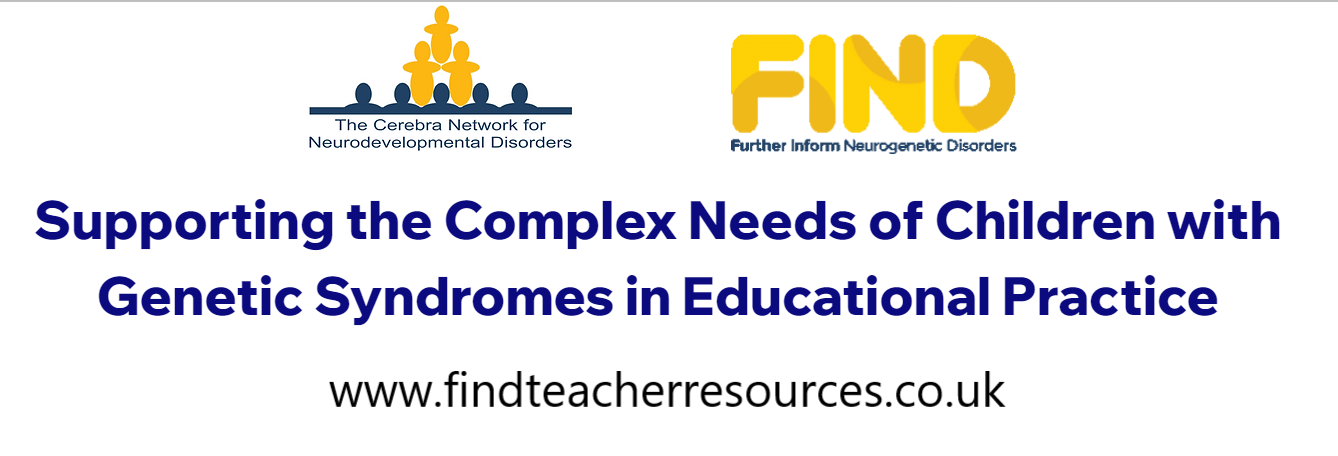
The Neurodevelopmental Research (NDevR) lab recently launched a new teacher focused training resource: Supporting the Complex Needs of Children with Genetic Syndromes in Educational Practice (www.findteacherresources.co.uk). Researchers Dr Jo Moss and Holly Snellgrove from the University of Surrey developed this novel, freely available e-resource in consultation with SENCOs, SEN teachers, parents, carers and educational psychologists. Its aim is to raise awareness and understanding of the complex needs of children with genetic syndromes associated with intellectual disability. In this blog, Jo and Holly give an overview of the inspiration behind the resource, and what it comprises.
“Children with neurodevelopmental conditions are known to experience poor developmental, health and wellbeing outcomes compared to neurotypical peers (Beadle-Brown et al. 2005). These inequalities are heightened in children with the most complex clinical presentations and particularly those with intellectual disability (ID) associated with rare genetic syndromes.
Currently rare genetic conditions account for approximately 50% of individuals with severe intellectual disability and 20% of individuals with a mild intellectual disability (Oliver & Woodcock, 2008). Therefore, it’s crucial that educational practitioners receive appropriate training and support to cater for the needs of children with genetic syndromes in classroom settings.
“At present, practitioners working in schools have very limited access to training and information about rare genetic syndromes”
At present, practitioners working in schools have very limited access to training and information regarding these syndromes and due to the rarity of the syndromes, they are unlikely to have significant experience of working with other children who have the same condition. Therefore, condensed and accessible information on genetic syndromes can be invaluable for practitioners (Waite et al, 2014).
The resource we developed features information on a range of topics that teachers/educational practitioners can work through at their own pace. It includes topics such as ‘Co-occurring Conditions’, ‘Understanding Behaviour’, ‘Individual Differences’, and ‘Support for Parents and Carers’.
The resource features informative text and infographics, videos from the research team, teachers, parents and an educational psychologist, links to further resources and reflective exercises. The content of the resource has been informed by research findings from various scientific studies, which can be accessed from the academic papers section.
The resource also has dedicated pages which signpost users to additional resources and useful support groups, both general and syndrome specific, that can enable users to identify further information and support resources.
We hope this resource will help teachers and educational practitioners to further develop their understanding of the ways that children with genetic syndromes can be supported in educational settings. Although the resource was designed primarily for education practitioners, others who support children with genetic syndromes may also find it useful, and it is therefore accessible to all.
The resource can be accessed via the following link: www.findteacherresources.co.uk
The launch event can be found here.”
